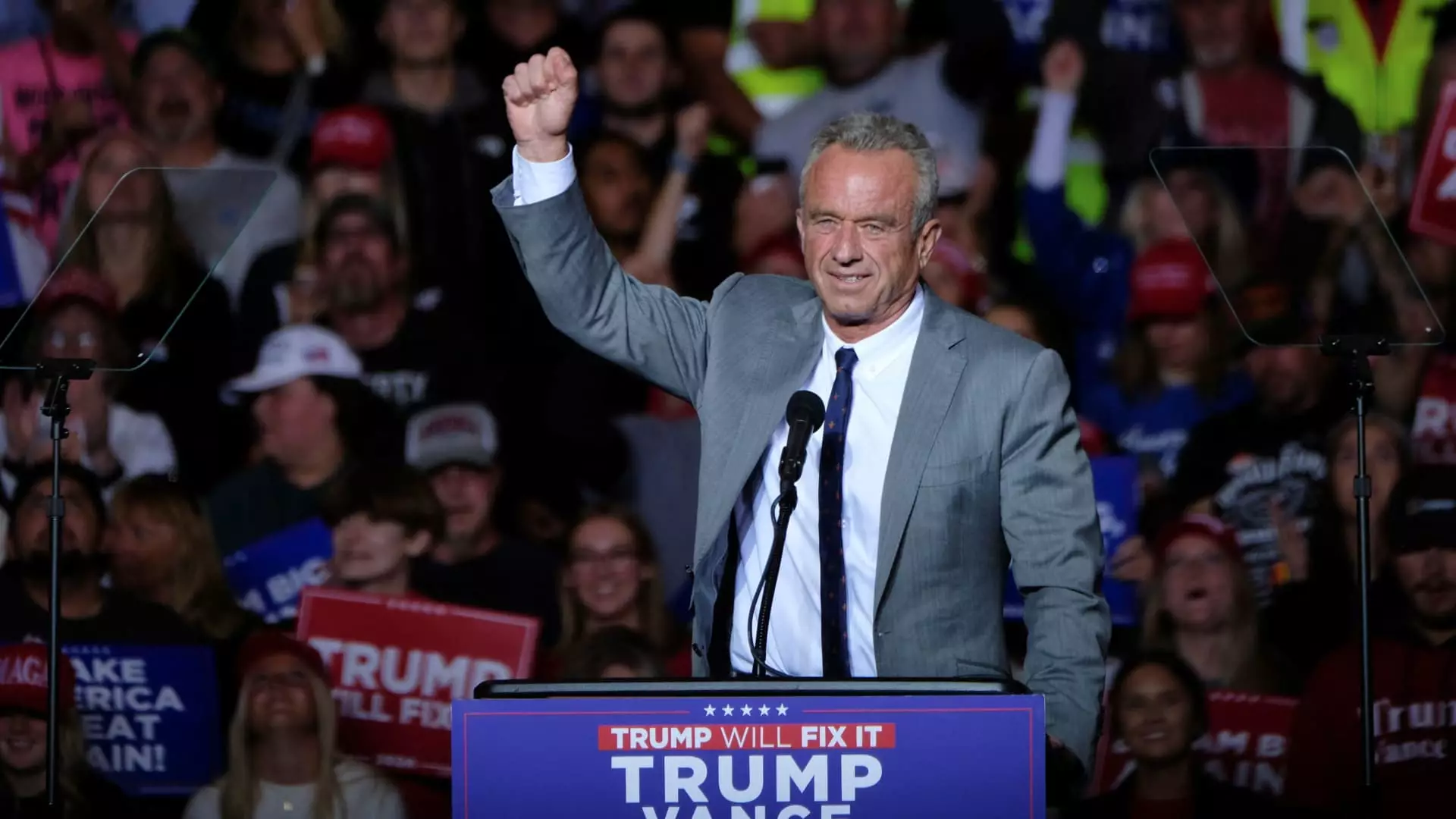In the world of finance and healthcare, the ripple effects of political appointments can significantly influence market behavior. The recent uptick in shares for dental care titan Henry Schein highlights this phenomenon. Following the news that Robert F. Kennedy Jr. may be appointed the Secretary of Health and Human Services in the upcoming Trump administration, investors are speculating on a potential overhaul of fluoride regulation in public water. As political moves translate into financial gains, the dental sector finds itself poised for growth amidst uncertainty.
Henry Schein’s shares spiked nearly 5% in a single trading session, marking its most promising day since mid-summer. The enthusiasm wasn’t confined to Schein; other dental product manufacturers like Dentsply Sirona and Envista witnessed a similar uptick. This upbeat market sentiment reflects a broader anticipation of health policy shifts that could directly affect the landscape of dental care in the U.S.
The Fluoride Controversy
Fluoride has long been lauded as an effective ally against tooth decay, a mineral that strengthens enamel and reduces cavities. Yet, it has also become a contentious subject that has spurred numerous debates and led to the termination of some local fluoridation initiatives. Kennedy’s public stance to potentially eliminate fluoride from drinking water has sparked discussions about a resulting surge in dental visits. Investors are understandably intrigued, foreseeing a scenario where the dental hygiene industry could thrive if fluoride were to be phased out.
Kennedy’s assertion on social media suggested that his administration would advocate for the removal of fluoride from water supplies. Experts, like Don Bilson from Gordon Haskett, interpret this as an indication that shampooing fluoride from public drinking water would result in a significant increase in dental care demand. More individuals might seek out dental treatment options as the preventive benefits of fluoride dwindle.
The implications of Kennedy’s potential appointment extend far beyond the dental sector. The healthcare market at large has seen considerable fluctuations in response to these developments. The Health Care Select Sector SPDR Fund (XLV) has dropped around 3.5% during the month of November, marking a troubling trend amid a broader upward trajectory in the S&P 500. This divergence reflects how specific health-focused equities are reacting quite differently to the political climate.
While some stocks in the healthcare realm have borne the brunt of Kennedy’s reputation—specifically, those related to pharmaceuticals and processed foods—dental stocks appear to be a rare bright spot amid cautious investor sentiment. With the anticipation of increased scrutiny on vaccine efficacy and food regulations, investors are weighing their options carefully.
As the nation braces for potential regulatory changes under a Trump administration, it’s crucial to recognize that these shifts may take considerable time to materialize. Bilson pointed out that the Environmental Protection Agency is primarily responsible for water issues rather than Health and Human Services, indicating the complexity of actual policy implementation.
In this light, while the dental sector can momentarily celebrate its gains, the long-term viability remains uncertain. Investors must navigate a landscape marked by volatility and unpredictability as the anticipated policy shifts unfold. The proposed removal of fluoride from public water could ignite a renaissance in the dental hygiene industry, but such change would likely require persistent advocacy and legislative overhaul to enact meaningful change.
Henry Schein and the wider dental care sector are experiencing a cautious yet promising moment in the wake of political changes. As investors react to the potential disruption of longstanding dental health policies, the question remains whether these shifts will yield sustained growth or a fleeting market surge. Regardless, the conversation around fluoride highlights a critical intersection of public health, policy, and market dynamics that will continue to evolve in the months ahead.

